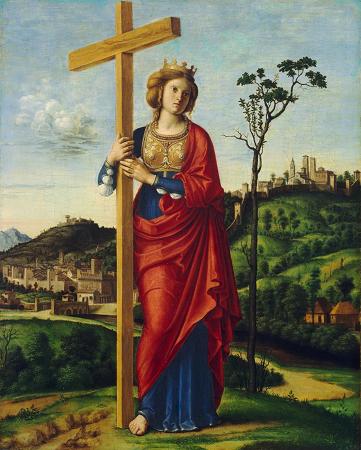Saint Ambrose. Aurelius Ambrosius, better known in English as Ambrose, was a Archbishop of Milan who became one of the most influential ecclesiastical figures of the 4th century. He was the Roman governor of Liguria and Emilia, headquartered in Milan, before being made bishop of Milan by popular acclamation in 374. Ambrose was a staunch opponent of Arianism. Ambrose was one of the four original Doctors of the Church, and is the patron saint of Milan. He is notable for his influence on Augustine of Hippo. Traditionally, Ambrose is credited with promoting antiphonal chant, a style of chanting in which one side of the choir responds alternately to the other, as well as with composing Veni redemptor gentium, an Advent hymn. Ambrose was born into a Roman Christian family about 340 and was raised in Gallia Belgica, the capital of which was Augusta Treverorum. His father is sometimes identified with Aurelius Ambrosius, a praetorian prefect of Gaul; but some scholars identify his father as an official named Uranius who received an imperial constitution dated 3 February 339. His mother was a woman of intellect and piety and a member of the Roman family Aurelii Symmachi, and thus Ambrose was cousin of the orator Quintus Aurelius Symmachus. He was the youngest of three children, who included Marcellina and Satyrus, also venerated as saints. There is a legend that as an infant, a swarm of bees settled on his face while he lay in his cradle, leaving behind a drop of honey. His father considered this a sign of his future eloquence and honeyed tongue. For this reason, bees and beehives often appear in the saint's symbology. After the early death of his father, Ambrose went to Rome where he studied literature, law, and rhetoric. He then followed in his father's footsteps and entered public service. Praetorian Prefect Sextus Claudius Petronius Probus first gave him a place in the council and then in about 372 made him governor of Liguria and Emilia, with headquarters at Milan. In 286 Diocletian had moved the capital of the Western Roman Empire from Rome to Mediolanum. Ambrose was the Governor of Aemilia-Liguria in northern Italy until 374, when he became the Bishop of Milan. He was a very popular political figure, and since he was the Governor in the effective capital in the Roman West, he was a recognizable figure in the court of Valentinian I. In the late 4th century there was a deep conflict in the diocese of Milan between the Nicene Church and Arians. In 374 the bishop of Milan, Auxentius, an Arian, died, and the Arians challenged the succession. Ambrose went to the church where the election was to take place, to prevent an uproar, which was probable in this crisis. His address was interrupted by a call, Ambrose, bishop!, which was taken up by the whole assembly. Ambrose was known to be Nicene Christian in belief, but also acceptable to Arians due to the charity shown in theological matters in this regard. At first he energetically refused the office, for which he was in no way prepared: Ambrose was neither baptized nor formally trained in theology. Upon his appointment, Ambrose fled to a colleague's home seeking to hide. Upon receiving a letter from the Emperor Gratian praising the appropriateness of Rome appointing individuals evidently worthy of holy positions, Ambrose's host gave him up. Within a week, he was baptized, ordained and duly consecrated bishop of Milan. As bishop, he immediately adopted an ascetic lifestyle, apportioned his money to the poor, donating all of his land, making only provision for his sister Marcellina. This raised his popularity even further, giving him considerable political leverage over even the emperor. Upon the unexpected appointment of Ambrose to the episcopate, his brother Satyrus resigned a prefecture in order to move to Milan, where he took over managing the family's affairs. Ambrose studied theology with Simplician, a presbyter of Rome. Using to his advantage his excellent knowledge of Greek, which was then rare in the West, he studied the Old Testament and Greek authors like Philo, Origen, Athanasius, and Basil of Caesarea, with whom he was also exchanging letters. He applied this knowledge as preacher, concentrating especially on exegesis of the Old Testament, and his rhetorical abilities impressed Augustine of Hippo, who hitherto had thought poorly of Christian preachers. In the confrontation with Arians, Ambrose sought to theologically refute their propositions, which were contrary to the Nicene creed and thus to the officially defined orthodoxy. The Arians appealed to many high level leaders and clergy in both the Western and Eastern empires.
more...








